Hi, I’m Georgie.
I am an accredited Forest Therapy Practitioner, trained with Lightbox, a CPD Group and Complimentary Medical Association registered provider. With a background as an Occupational Therapist and Mental Health Practitioner, I specialise in supporting children with Autism and ADHD and their families. I am also a Mum, and have lived experience of neurodivergence in my own personal life.
I value slowing down and enjoy seasonal living, spending time outdoors, creating and capturing moments of beauty, and raising my son to climb trees, play in streams, and feel the dirt on his hands. However, life comes with adversity, and stress is the epidemic of our time. Many of us are told “you can’t give from an empty cup,” but what do you do when your cup feels perpetually empty?
For healing bodies, sensitive souls, neurodivergent minds, and anyone seeking solace in nature, Forest Therapy offers a restorative space for rest and renewal. Whether you're navigating burnout, nervous system dysregulation, or simply in need of a break from the daily grind, the forest provides a peaceful sanctuary to reconnect, heal, and find balance.
In a fast-moving world where stress is normalised and many feel disconnected, the forest offers profound healing for the body, mind, and soul. Backed by science, the practice of forest bathing—or Shinrin-yoku—has been shown to reduce stress, boost mood, and strengthen the immune system and much more. Rooted in the Biophilia Hypothesis, which suggests we’re hardwired to connect with nature, forest therapy helps restore balance to the nervous system, regulate stress hormones like cortisol and adrenaline, and promote a deep sense of calm and clarity.
Whether you’re looking to recharge, reconnect, or simply breathe more deeply, forest therapy is for everyone
In nature connection, I have found the solace I believe many of us seek, and I believe regular practice of Forest Therapy can become a valued part of daily life—not just a tool for healing, but a way to nurture yourself, restore balance, and maintain well-being. Now, I want to share this practice with you.
WHo forest therapy is for
Forest Therapy can benefit:
Busy professionals seeking to reduce stress and improve focus
People managing burnout or nervous system overwhelm
Neurodivergent people, including those who are autistic or have ADHD
Families wanting meaningful, mindful nature experiences together
Those recovering from illness or surgery
Anyone craving a joyful escape from the everyday hustle
Older adults aiming to enhance physical health and well-being
Young people in need of gentle, non-pressured therapeutic spaces beyond talking therapy
Those who simply want to slow down and soak up the beauty of the natural world
…and anyone looking to slow down, reconnect with nature, and nurture their well-being.

